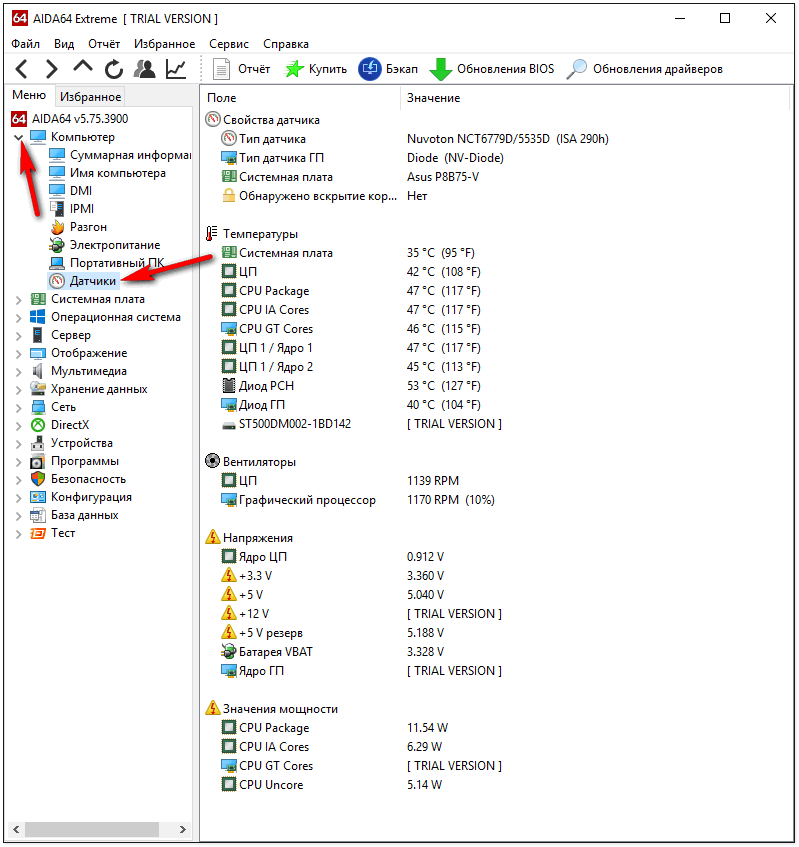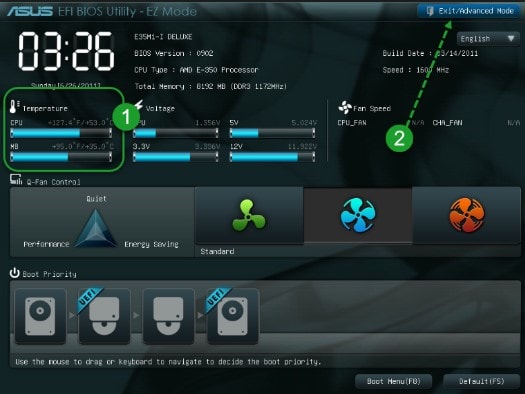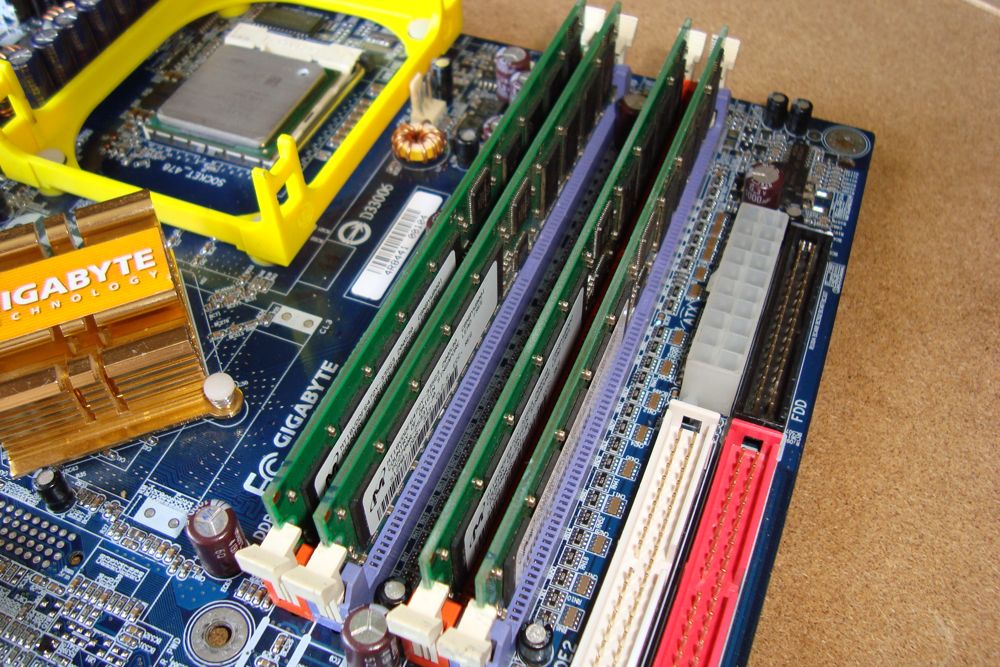The purpose of this article is to show the most interesting offers in the telecommunications market, allowing you to make long distance calls at the lowest rates.
Long-distance communication is the connection to the landline or mobile numbers of the country, but not including the numbers of other countries (this is international communication) and not including the numbers of your region, in our case the Saratov region (this is intra-zone communication).
Technically, there are three long-distance calling technologies:
- traditional long-distance communication
- iP-telephony and its variety (sip-telephony)
- mobile (cellular) communication
Technical differences turn into economic differences, i.e., the price of the tariff.
Currently, the cost of a call through a fixed (wired) connection using traditional long-distance communication is usually from 1.50 to 4.00 rubles per minute. If we talk about the weighted average price, then about 2.50 rubles per minute.
Through sip-telephony, a long-distance call costs from 0.50 to 2.00 rubles a minute. The weighted average price is about 1.50 rubles per minute. Moreover, some sip-operators charge per second. Since 2007 to 2015 a lot of companies making long distance calls have entered into agreements with sip-operators. Until recently, this was considered a reasonable and profitable solution.
However, since the end of 2015. The situation in the communications market has changed dramatically. Cellular operators began to offer tariffs with a monthly fee, containing packages of minutes, including to long-distance directions. In recalculation, the price of a minute of conversation is 30-80 kopecks! Which is about 3 (!!!) times cheaper than sip-telephony and about 5 (!!!) times cheaper than traditional long-distance communication.
Below we will briefly talk about each of the communication technologies, and operators offering the most interesting and profitable long-distance tariffs. Naturally, the main emphasis will be placed on the disclosure of tariffs by mobile operators offering prices several times lower than operators of previous technologies.
Traditional long distance communication.
Legally - a long-distance communication service.
Dialing a long-distance number from a landline phone starts after 8. We dial 8, the area code, and the subscriber's number. After dialing the number, the call goes to the telephone exchange of the local operator providing a telephone number and line. The PBX redirects the call to the operator of long-distance (long-distance) communications. According to the legislation, the subscriber has the right to independently choose a long-distance communication operator. For this, it is necessary to conclude an agreement with a long-distance (long-distance) communication operator and write a statement to the local communication operator, indicating your phone numbers that need to be switched to the selected long-distance communication operator. The local telecom operator makes settings on his communication center and in the future, all long-distance calls through 8 will automatically be made through the selected long-distance telecommunications operator.
More information about long-distance communications and the list of long-distance telecom operators can be found, for example, in the corresponding Wikipedia article.
Tariffs of telecommunication operators do not see any reason to compare. Each long-distance operator has several such tariff plans, they are ready to give discounts on them. But what is the use, even if with discounts, these tariffs will be approximately 5 times more expensive than long-distance tariffs via cellular communication.
IP telephony.
Legally - a data communication service for the purpose of transmitting voice information.
IP-telephony, SIP, VoIP - a voice over the Internet.
Read more about IP (SIP) telephony in a separate article.
Why the tariff for sip-telephony is much lower than the traditional long-distance communication read.
Due to the fact that for mobile operators tariffs for long-distance calls go on average 3 times cheaper, now customers choose sip-telephony less often.
Nevertheless, sip-telephony for long-distance calls has some advantages:
1) The ability to substitute caller ID for outgoing calls to cellular numbers.
2) Multichannel. SIP telephony will help out at peak times when there are not enough outgoing channels.
3) If there are very few long-distance calls (for example, only 10 calls per month), then it is easier and cheaper to make them via sip-telephony than to pay a monthly fee to a mobile operator for a package of minutes, which will still not be dialed.
Long-distance communication through cellular communication.
In 2016 mobile operators have sequentially introduced tariff plans that imply a package of minutes for a certain monthly fee, including to intercity destinations (all over Russia to all landlines and mobile numbers of all operators (and to their mobile networks generally free of charge)). As a result, the price of a minute is approximately 30 to 80 kopecks, depending on the selected tariff plan and the completeness of its use. However, there are options in which you can even reach the price of 23-25 \u200b\u200bcents / minute.
We wrote in detail about these tariffs in separate articles for each operator:,. Carrying out a detailed analysis of these tariffs, we found that among all the offers, Tele2 and Megafon operators have slightly more favorable tariffs, where the average price is about 50 kopecks per minute for all long-distance calls in Russia. There are options for 23 kopecks / minute. In addition, the tariffs of Megafon include an additional bonus - free calls for numbers of Megafon of Russia. And these free calls are not deducted from the minutes package.
The attentive reader has already noticed that in the “tasty” package tariffs of mobile operators there is at least one pitfall. After the package of minutes has been exhausted, the price of a minute is no longer so interesting. In addition, only one person can call through one SIM card, but what if several employees need to call from the office. If you buy SIM cards with such rates for all employees, then the total monthly fee for all SIM cards will eat all the savings.
Here our solution comes to the rescue: a telephony server with its function. The server can calculate the number of minutes pronounced, and after spending a package of minutes in the automatic mode, turn off outgoing calls through this SIM card and redirect calls through another or via sip-telephony. Moreover, the server will leave the possibility of outgoing calls to the free direction (own network). In addition, it is possible to configure the uniform use of minute packets between several SIM cards, or in proportion to their number of minutes. Calls to Moscow and St. Petersburg in the server are routed through Sipnet and are made for the offer for free. Moreover, when the limits established in Sipnet are reached (either 5 calls or 30 minutes every day), the telephony server will automatically redirect calls through another operator. All this is just a small feature of the telephony server.
Everyone wants to constantly be in touch with their family while traveling and traveling. Help in solving this issue will be able to modern long-distance communication services.
Currently, mobility is one of the main characteristics in the modern world. We are all constantly on the move, moving somewhere, going on business trips, traveling not only around the cities of our country, but also around the world. And everyone wants to constantly remain in the zone of accessibility for their loved ones, relatives and friends. Intercity and international communication services will be able to help.
How is the organization implemented?
Long-distance and international telephone services can be implemented according to two main schemes.
- Operator selection during each call (Hot-Choice). These services are ideal for all those users who are interested in making calls to other cities and countries of the world. The most optimal operator in this case is selected at the time of making such a call.
- Advance choice of the carrier (Pre-Select). This option is used by all those citizens who care not only about their own benefits, but also about convenience. They do not need to enter a lot of numbers when calling to other cities and countries. In this case, all connections are made by one operator.
What today can the services of telecom operators boast?
- First of all, it is dialing the first time. This is due to the fact that the phone call is made on the shortest and least loaded communication channel.
- Affordable prices for tariffs when making international calls.
- High quality of services (no echo, noise and delays, excellent audibility).
- The ability to purchase your own mobile or city number.
- Making calls via the Internet.
Long-distance communication services
Long-distance communication is a telephone connection between subscribers who are at a remote distance between themselves within the same country. It consists of long-distance telephone exchanges (MTS), telephone network channels, as well as automatic switching nodes (UAK).
The subscriber does not connect to the network directly, but through local telephone lines (rural or urban). He goes to the city telephone exchange, then to the MTS of his city and only then to the intercity channel of the necessary zone.
International telephone services
Using this connection, a telephone conversation is provided with a subscriber who is located in another country in the world. You can easily get international telephone services from operators from your home phone, universal payphones, at special customer service points, and a mobile phone.
Such telephone services enable each subscriber to make round-the-clock calls abroad, anywhere in the world and at any time convenient for him. Constant moving and traveling are part of the lives of many people. Some travel abroad to relax, someone on a business trip.
In any case, each person wants to stay in touch with their friends and relatives. That is why, going to another country, it is necessary to resolve the issue of communication with you. The best option may be international mobile services. Many operators in our country provide such a service.
It is very convenient, fast and practical. After all, it is not always possible to find a landline telephone or a branch that provides international telephone services. But the cell phone is always at your fingertips. With it, you can make a call at any time and anywhere.
Telegraph communication
This is the transmission of information over distances with the help of letters and numbers (telegrams) with a mandatory entry at the reception point. It is performed by means of electrical signals via wires or radio signals. A feature of operators who provide telegraph services is the fast transmission of messages with binary signals of direct or alternating current, modulated in frequency. This can be carried out over long distances.
The teletype apparatus itself, which transmits such telegrams, is somewhat similar in appearance to a typewriter. It has a keyboard with numbers and letters, which is the key that works in the Morse apparatus. Here, each letter or number is represented by a five-digit combination of points (current pulses), as well as gaps when there is no current. When a certain letter is pressed, the levers of the apparatus itself close or disconnect the current circuit. Telegraphic communication is available in every locality of our country, therefore it is possible to send messages not only to other cities, but even to another country in the world.
cellular
Mobile communications is a special type of telecommunications. With its help, voice and text information is transmitted to subscribers of wireless terminals. All of them are not tied to a specific place. The most popular today is cellular communications. Today, the services of mobile operators are provided to many subscribers. This is done using wireless stations, each of which operates within a certain territory. It depends on the terrain of the area itself, signal strength, as well as many other parameters.
If the subscriber is in motion, then such stations switch among themselves. All this is carried out automatically, imperceptibly for the subscriber. Moreover, the connection itself does not stop. Thanks to this approach, it is possible to use signals that are weaker in power and to cover large areas with mobile communications. It is not only effective, but also environmentally friendly.
Cellular communications is the fastest growing telecommunications field today. It got its name due to the fact that such a transmission of communication is divided into separate cells (cells). The network itself is divided into two main subsystems: switching and base stations (BTS).
With the help of just such stations, the cells themselves are formed. Each such BTS is capable of serving three cells. The radio signal itself from the station is transmitted via antennas to the cells. BTS are located on special towers that are built specifically for them. However, in huge cities it is very difficult to find a free place for their construction. That is why each of you probably met the base stations on the roofs of multi-story buildings and structures.
Cellular services for subscribers are provided by certain operators who have permission for this, a license and all the necessary equipment.
Modern communication
You can learn more about the current services of long-distance and international communications at the Svyaz exhibition. This event will be held in the largest exhibition complex not only in Moscow, but also in Russia - Expocentre Fairgrounds. Here you can learn about advanced developments, achievements, equipment and much more in the world of communications. The Svyaz exhibition is a great place where every company is able to loudly declare itself not only to the whole country, but also to the world. Here, in one place, not only a potential target audience is gathered, but leading experts in this industry from around the world.
In Russia, there are several operators that provide communications in the country and outside its territory. The largest are Rostelecom and Interregional Transit Telecom. When calling a number outside the subscriber’s locality, you must first select one of the telecom operators, for which, when connecting after eight and a dial tone, the Rostelecom or Interregional Transit Telecom code is dialed for the intercity.
How to choose the right operator?
Using a specific code is not only the technical procedure for dialing when making a phone call, but also the choice of a company that will provide telecommunication services. To get the desired level of service and reasonable tariffs, before dialing the numbers corresponding to a particular operator, you need to inquire about the information about the company, prices and technical capabilities. The official rates and conditions for long-distance communication between Rostelecom and Interregional Transit Telecom are best viewed directly on the websites of companies. It is also worth asking user reviews.
The presence on the market of several companies creates healthy competition, which is why the consumer wins. The long-distance communication of Rostelecom and Interregional Transit Telecom is licensed and meets all the necessary parameters. It is important to correctly navigate the proposals and choose the best option. First of all, it matters for those individuals or legal entities who constantly use the services of long-distance and international communications. There are not only various price offers on the market, but also a number of other factors that are worth paying attention to.
The quality of communication directly depends on the technical capabilities and branching of the communications network. For example, dialing at the first attempt, good audibility without delays, echo and additional noise. If the cost-effectiveness of calls comes first, it makes sense to use the services of both companies, choosing the best rates for a particular occasion. Technically, this is possible, although not as convenient as automatic connection via the default carrier.
Dialing rules for long distance calls
Regardless of the telecommunications company, there are two ways to dial:
- Hot Choice - the choice of the carrier directly at the connection;
- Pre-select - connection through a pre-selected operator.
 When dialing using the Hot Choice method, the two digits that come after the figure eight indicate the company through which the subscriber prefers to make a call. The intercity communication code of Rostelecom is “55”, and the Interregional Transit Telecom is “53”. In addition to these operators, a number of smaller companies are licensed for similar activities, such as Arktel with the long-distance code “21”, Comstar - “23”, Orange - “54”, Sovintel (aka Beeline) - “51” and others.
When dialing using the Hot Choice method, the two digits that come after the figure eight indicate the company through which the subscriber prefers to make a call. The intercity communication code of Rostelecom is “55”, and the Interregional Transit Telecom is “53”. In addition to these operators, a number of smaller companies are licensed for similar activities, such as Arktel with the long-distance code “21”, Comstar - “23”, Orange - “54”, Sovintel (aka Beeline) - “51” and others.

Most often, subscribers are interested in how to make long-distance calls through Rostelecom (RTK) or Interregional Transit Telecom (MTT).
A call through MTT for an intercity is as follows: 8 - 53 - area code - required number. Example of dialing a landline phone number in Moscow: 8 - 53 - 495 - 249 73 25, where 495 is the area code of Moscow, and 249 73 25 is the phone number. Example of dialing a mobile phone: 8 - 910 - 249 73 25 for communication with a number within one region or 8 - 53 - 910 - 249 73 25 for numbers of other regions.
Exit to the intercity via Rostelecom: 8 - 55 - city code - number of the called subscriber. Example of dialing to a Moscow landline phone: 8 - 55 - 495 - 249 73 25, where 495 is the Moscow code, 249 73 25 is the phone number. Example of dialing a mobile phone: 8 - 910 - 249 73 25 for communication with a mobile number within one region or 8 - 55 - 910 - 249 73 25 for a mobile number in another region.
You should pay attention to the difference in the dialing code of the long-distance communication between Rostelecom and Interregional Transit Telecom on the mobile phones of your and another region.
Pre-select connection is intended for those who prefer to receive services from one operator. Usually an agreement is made with the selected company, and all calls are made automatically, missing the code for the intercity of Rostelecom, Interregional Transit Telecom or another company. In this case, the user receives a simplified dialing option, which for calls between cities via Rostelecom or another operator is as follows: 8 - city code - the required number.
If the telecommunications company has not been selected and not previously agreed upon, then when dialing a short number, Rostelecom services will be provided by default.
The advantages of long-distance communication services of Rostelecom
Rostelecom is one of the largest Russian operators in the long-distance and international calls market. 
Company Advantages:
- competitive prices;
- wide selection of tariffs, packages and special offers;
- quick connection;
- high quality of services;
- simplified set;
- stable connection even with the most remote settlements;
- free long-distance calls within the Rostelecom network;
- selection of a convenient form of payment;
- the ability to manage services through a personal account on the company's website.
The company has the most extensive and extended telecommunications network, covering all corners of Russia, even those in which the communication of other operators does not work. High technology provides fast dialing to the desired subscriber. The connection on the first attempt indicates that the system routes the call through the shortest and currently unloaded communication channel.
The operator offers special packages for home, office and corporate phones, designed for each category of users. It is recommended that Rostelecom make long-distance calls from your home or office phone by first selecting one of the tariffs taking into account the number of calls needed.
Using the right tariff allows you to:
- lower monthly fee;
- receiving additional services at special prices or as a bonus;
- one-time setup of several services.
If it is necessary to disconnect the connection between Rostelecom long-distance cities, it is recommended to visit one of the company’s offices, send an application by e-mail or call for technical advice by phone to the technical support department. There is also the possibility of suspending the provision of services for an agreed period.
Telecommunication operators of Russia provide telephone communications in the country and abroad, but only a few leading companies have a high level and comfortable speed of connection. If you want to use the services of Rostelecom, before making long-distance calls, you need to make sure that the code you dialed corresponds to this particular operator. You can also use a simplified set. Which option do you prefer?
In modern conditions of increasing market competition, it is absolutely unacceptable to lose potential customers due to problems with dialing into the office. The latest telephony technologies are created to give companies access to stable and convenient corporate telephony. Gars Telecom offers its customers high-quality local, long-distance and international calls at affordable and affordable rates.
Local telephone
Local calls are made on the basis of a virtual private telephone network (VPN). The functionality of the system includes:
- unified numbering within the boundaries of the numbering plan;
- redistribution of city capacity between offices;
- conference call.
Providing local connection services, Gars Telecom provides reliable protection of subscribers' data. At the same time, the purchase of a modem and the laying of a dedicated line are not required - depending on the conditions of the customer, our experts will combine the existing channels or offer another suitable solution.
Long-distance and international telephone communication
Long-distance and international telephone communication is carried out using Smart Dial automatic connection technology, which has several advantages.
- Calls in all directions.
- Digital quality of long-distance and international communication.
- Availability of offer.
We provide optimal tariffs for international and long-distance communication services provided by Smart Dial technology due to the established interaction with large operators. Gars Telecom's extensive partner network allows you to implement telecom projects of almost any scale.
Our services
Personal manager and qualified technical support. Long distance telephony and international connections will be as simple as local calls. Any questions will be promptly resolved by your personal manager and a 24-hour support service.
Special rates for selected destinations. We select a package of services literally “by the standards” of our customers, depending on their needs and business characteristics, and we can offer truly individual conditions for international telephone communications and calls throughout Russia.
Free connection and setup. With Gars Telecom, you pay only for long-distance communication services and calls to other countries: all related operations to build a turnkey service are absolutely free.
Additional services. Gars Telecom expands the horizon of functionality of a traditional intercity: with us you can use several telecom systems integrated into a single network, create greetings, set up multi-level voice menus and call forwarding.
Tariff Plans
The economic feasibility of a service is at the forefront in the implementation of any of our projects. Therefore, tariffs, like the entire customer policy of Gars Telecom, are as open as possible to the needs of the customer. For more information about prices, your personal manager or our consultants will tell you.
Today, in the era of global computerization, free international telephone service has become a reality. Developers in the last decade have taken a big step forward and offer users to evaluate all the possibilities of the Internet, organically connected with communication. One of the revolutionary developments was IP-telephony, which is very popular all over the world.
Benefits of IP Telephony, or Affordable International Telephony
The main advantage of IP telephony is reduced bandwidth. This indicator was achieved by taking into account the statistical characteristics of speech traffic, namely, blocking transmission of pauses, which occupy most of the time occupied by the transmission channel, as well as compression of the speech signal. Today, IP-telephony traffic is strictly controlled by international standards that meet the ISO 9000 class, which includes quality control of the connection (the speed of connection plays the main role in determining this standard), as well as the quality of voice transmission and perception.
What is the main difference between IP-telephony and traditional communications?
Conventional telephone communication involves the transfer of voice over a dedicated channel through a telephone exchange. In the case of IP-telephony, voice is transmitted over the Internet, while compressed data packets go in different ways, after which they are decoded and grouped in a certain order. To make a regular phone call, you need a well-developed network of telephone exchanges, the connection between which is via cables, satellites and telephone lines. In addition, the use of a dedicated line to make a call is characterized either by excess productivity or by downtime. All this entails additional costs, which accordingly affects the cost of international communication.
In the same case, if the call is made through IP-telephony, there is no need to create a new network, since existing ones are used. But its main difference lies in the fact that there is a compression of the voice signal, allowing you to simultaneously transmit a large number of packets (even if calls are made by different users). This principle allows you to fully use the resource of the cable.
In order to use this service for making calls abroad you do not need to buy special expensive equipment. The user can use a VoIP phone that in its appearance resembles a regular phone, or with a special PC program for calls. Thanks to this, international communication becomes even more convenient and of high quality.
Why IP-telephony from the company "Multicom"?
Our company has been leading in the field of providing high-quality modern communication services for several years. We practice an individual approach and offer our customers the most profitable tariff plans based on the main direction for making calls.
The main advantages of working with our company:
- High quality communication
- A large selection of tariff plans, which allows you to make calls in one direction or another with the greatest benefit
- Easy dialing
- Technical support service that works 24 hours a day and 7 days a week
In addition, we constantly carry out various promotions, offering our customers a unique opportunity to make really cheap calls.
Long-distance and international telephone communications: economic issues
Long-distance telephone services account for a significant share of the operational budgets of companies with business interests in different cities. In the case of cross-border business, the cost of telephone calls at international rates can have a significant impact on overall financial results. In a crisis, the optimization of communication costs is becoming one of the priorities of the economic policy of any enterprise, and for companies with large call centers with a geographically diversified client audience, this turns out to be a matter of survival.
International connections and intercity - communication organized by the principle of IP-telephony is intended, first of all, to radically reduce operating expenses and increase business efficiency. From the point of view of the quality of the call and the use of the telephone, there are no differences between the "classic" and IP telephony, the difference is in the hardware of the "regular" handset and VOIP phone and data transfer technologies.
Modern communication technologies are becoming an important tool for managing business performance.






